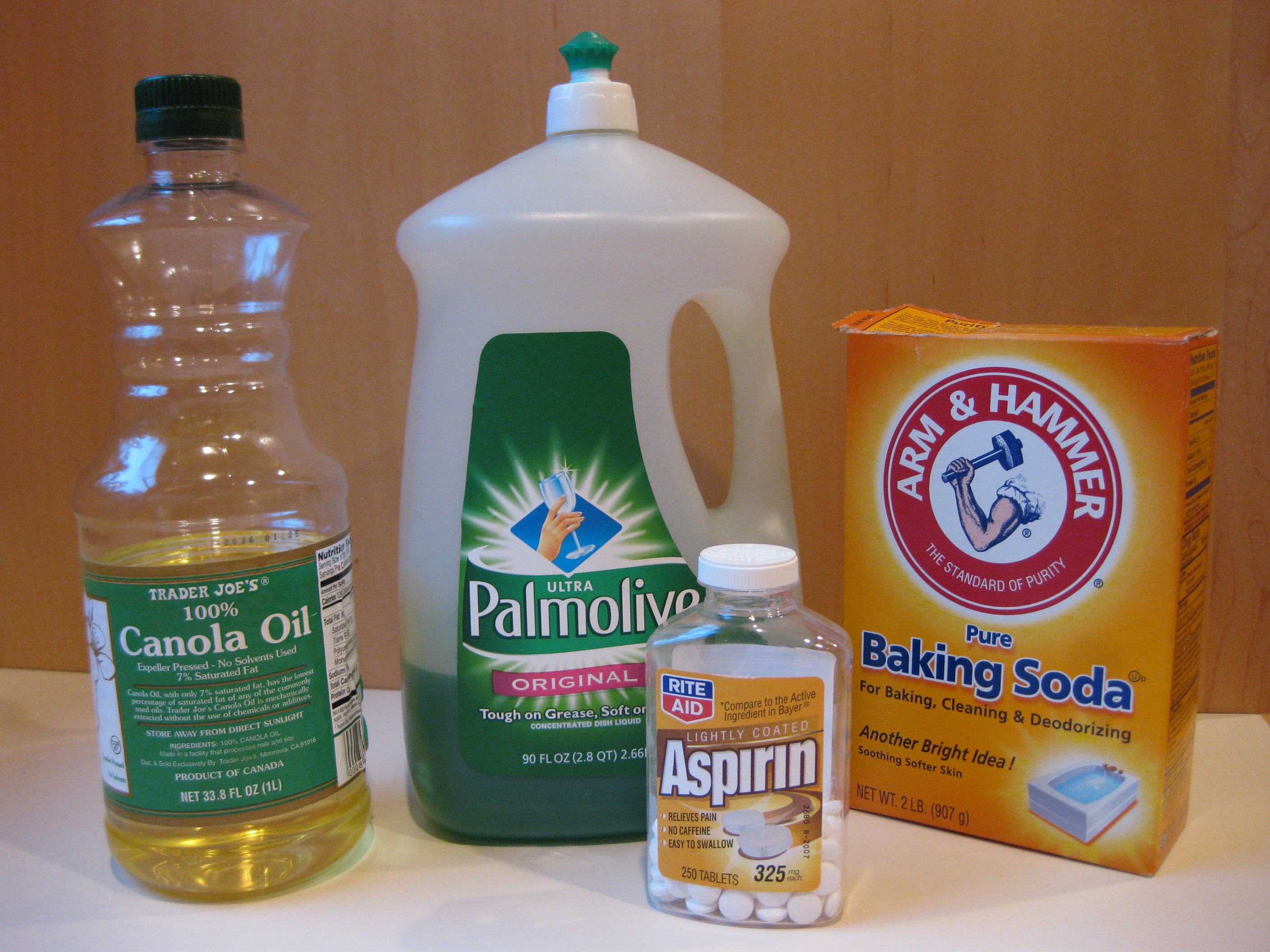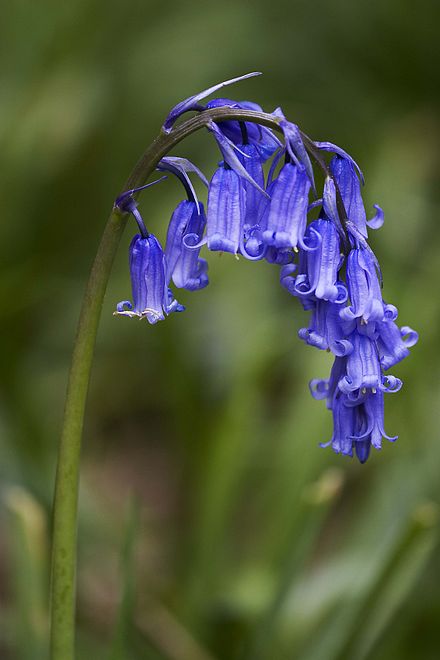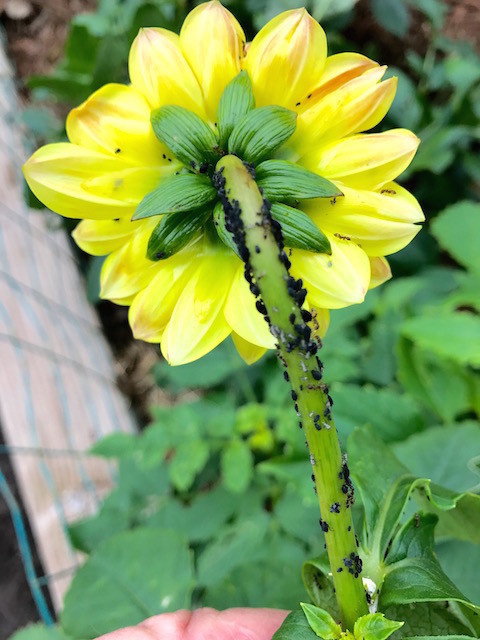Whatever you’re paying for high-priced garden solutions, it is far  too much! Many concoctions can be made with ingredients you have in your pantry. Here are a few recipes I’ve found to be effective and can be made at home by any frugal gardener.
too much! Many concoctions can be made with ingredients you have in your pantry. Here are a few recipes I’ve found to be effective and can be made at home by any frugal gardener.
ROSE SPRAY-helps prevent diseases such as rust, blackspot, and powdery mildew.
Mix together:
- 1-tablespoon baking soda
- 1-teaspoon mild dishwashing detergent
- 1-tablespoon vegetable oil
- 1 dissolved aspirin
Add:
- 1-gallon water
Mix together and pour into a spray bottles. Spray roses every 1-2 weeks.
DEER REPELLENT-will keep deer from nibbling plants for up to two weeks.
Blend and put through cheesecloth to remove lumps:
- 1 raw egg
Add and mix:
- 1-tablespoon Tabasco sauce
- 1-tablespoon fish emulsion
Some have said to put this in the sun for a few days but I’ve found it to be stinky and very effective straight from the kitchen.
MOLE REPELLENT-will send moles to another garden.
Blend together:
- 1-tablespoon castor oil
- 1-tablespoon dishwashing soap
- 1-tablespoon water
Mix with 2 gallons water and spray the ground where moles are uprooting your seedlings. Water in.
CUCUMBER BEETLE SPRAY-Kills and Repels
- 3-6 garlic cloves
- 6 small hot peppers or 1 Tbls. red pepper flakes
- 1 cup hot water
Soak overnight then mix in blender. Put through a sieve. Dilute with 3 more cups water and put in spray bottle. This is very strong! Be careful! For more on controlling cucumber beetles go to “Cucumber Beetles Back in Force“.
These homemade concoctions should be safe for the environment if used sparingly.



But there are only two effective home remedies for moles and this is not one of them. See attached:
http://caughtinthemiddleman.wordpress.com/2007/11/16/sheep-to-the-slaughter/
I don’t put anything in my writing that I haven’t tried myself. I read your solutions for moles, and while we’ve killed one with a shovel, the whole razor blade thing doesn’t appeal to me.
Personally, moles are the least of my problems. In fact, they do me a service by “tilling” our very hard clay soil. They are, however, a problem in garden beds with freshly planted seedlings. They are not eating the plants as do the gophers, but simply searching for earthworms and grubs. Sounds like on ranches they are a bigger nuisance.
Cats will help with your mole problem.
Is the Rose Spray safe to use on vegtables?
Moles do little damage to my garden. They do, however, break up and aerate the hard clay soil around here.
What is fish emulsion? Thanks!
That link is okay until they mentioned the razorblades and hemophiliac moles. I absolutely refuse to bury razor blades in the mole holes….I don’t care if it works! One day someone is going to cut the sod from the yard and find the rusty razor blade I put there and the tetanus shots will ensue along with the lawsuit!
Flies……To Rid your house with Flies, take a 1/2 tsp of Whole Cloves place in a Coffee Grinder. Grind to a fine powder. Place powder back in a smaller container with a funnel. Then wipe the Coffee grinder down Unplugged of course with a finger. Wipe the residue and dump on a 1/4 or 1/2 sheet of paper towel on 1/2 of one side. Then use 1 tsp of warm water to clean remaining residue in grinder and lid. Fold paper towel in half with the powder on the inside half. Drip residue water on towel. The towel now wet and powder encased can now be laid-out on the counter….Or the Best thing to do. Place damp towel in a Food Dehydrator on Low Heat and medium fan speed. Whala…The Files will no longer enter your home. Plus you have a Great Home Deodorizer…Smells Great.
Now the Next time you like to do this. Just sprinkle or previously ground glove powder on a paper towel and Dampen to repeat the process….Have a Great Day…Dean’o
Fish emulsion is a liquid fertilizer sold in garden centers. It is long acting and can be diluted and applied to the soil around the plant or applied as a foliar spray.
I spray it on the leaves of zucchini but I wouldn’t put it on the actual fruit or vegetable that you are going to eat.
I need a recipe for homemade weed killer. I need something that will kill nut grass also.
I know some people use white vinegar mixed with water (50/50) to spray or pour on individual unwanted weeds in small areas like between pavers. You can also pour boiling water on weeds straight from your tea kettle. Nut grass, however, is a tough one. I try to pull them when they are young and before the little “nuts” for which they are named, have formed. It has taken me years of weeding to get rid of these weeds and I still have some growing in a moist area where water drains from the hillside to the north of our home.
What about locust? I think one of them is eating my rose leaves.
Thanx for homemade spray for rose bushes… bought a dying mini-rosebush from the garbage rack at walmart for $2, loved it and it has become a part of the family… suffers from this white fungus… thanx
B.
Trying to get rid of agapanthus I was told Bicarb Soda and Vinegar does any one no the mix ratio’s
Margaret who wrote Sept 27, 2013.
Why do you want to “get rid of” agapanthus? Dig them up and give them to people who want them. Or offer them to people who will come and dig them up for you. Agapantus, if you are talking about
the lovely blue lily like flowers that look kind of spidery are expensive. Many people might love to have them in their gardens.
I know I would! I’m on a tight budget and so far haven’t been able
to afford these to my garden. I see them growing in nearby towns and cities, so I know they grow well here. Hope you can solve your problem and share with others too!
If you grow agapanthus of any size, you know they need to be thinned out every few years. Otherwise, they get very crowded and stop blooming. When they do this I bag them up and give them away. Kind of like zuchinni. If you are ever down this way, Margaret, email me ahead and I’ll have some “Peter Pan” agapanthus ready for you to plant.
Will the homemade rose concoction work if the rose already has blackspot?
The formula helps to prevent blackspot. If the rose already has blackspot, pick off infected leaves to keep it from spreading. Spray the roses again as new leaves come out and before they get rust and blackspot. Good luck!
Do you have a solution for ridding my yard of the Japanese Beetles? The product I bought last year just lasted for a day or two. I dread getting them back this year. They are the worst nuisance I’ve ever had in my yard. Thank you!
We do not have problem with the Japanese beetle on the West Coast so I had to do a little research on them. Looks like you need to treat them as we do the Western Spotted Cucumber Beetle. It eats flowers, tender greens and it’s larva attacks the roots of plants.
I found a lot of information on the Japanese beetle on the University of Kentucky’s website. I do not, however, suggest spraying insecticides on flowers as it also kills bees and other pollinators.
Let us know if you you find any information to share. Best of luck.